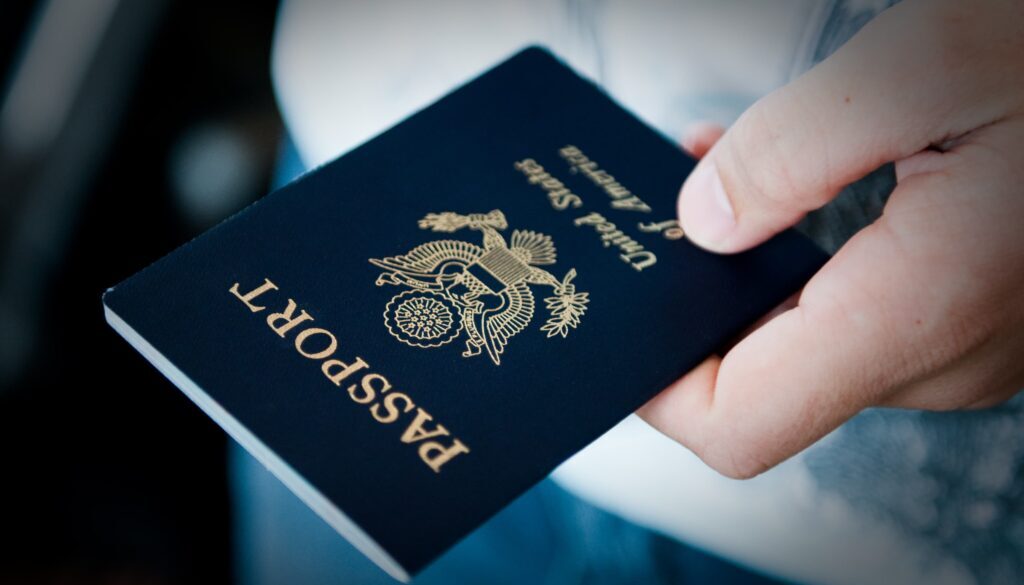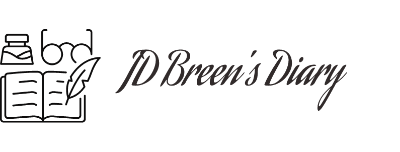The Secret Password

Atlanta, GA
May 28, 2023
I said unto the king: If it seem good to the king, let him give me letters to the governors of the country beyond the river, that they convey me over…
– Nehemiah 2:7 (Douay Rheims Bible)
Five centuries before Christ, Nehemiah sought permission from the King of Persia to travel to Judea. After sufficient supplication he received his hall pass, an early precursor to the modern passport.
It seems odd that we must get approval from third-party strangers before we can go places we’re otherwise welcome. But throughout history, like mob bosses running their carved-up enclaves, public officials have reflexively inserted themselves into other people’s personal travel and private transactions.
In ancient China, the Islamic Caliphate, and much of Medieval Europe, the phrase “your papers please” was already sporadically spoken. Some Italian city states required travel documents of merchants and envoys passing thru ports or to the interior.
But it was the English who institutionalized the practice of checking papers. The Privy Council under Henry VIII started issuing “passports” about a century after similar documents were first developed under Henry V.
Various versions of mobility permits popped up around Europe during subsequent centuries, and were most stringent in the Ottoman and Russian empires. But until (what else?) the First World War, unimpeded transit remained relatively common throughout the Continent.
Throughout Le Belle Époque, borders were usually crossed with little hassle. Even as industrialization facilitated increased movement, few travelers carried passports. Typically, none were needed to cross frontiers.
But as with so many scourges inflicted during the Great War, passports were imposed for “security” reasons. Across Europe after the armistice, mandatory passports…like house guests or herpes…joined the tally of “temporary” torments that never go away.
Across the pond, neither the Articles of Confederation nor any American state had passport provisions before the Constitution was adopted. From that time to Pearl Harbor, the US government required passports of its citizens only during the War Between the States and toward the end of World War I.
Those dubious statutes expired when Lincoln and Wilson each left office. But in 1941 new ones were instituted. After the Nazis were beaten and the Japanese gave up, mandatory passports somehow stuck around.
By the late 1970s they were required for anyone to legally enter or exit the US, even in peacetime.
During certain periods, passports could be obtained relatively quickly…sometimes in a matter of weeks. These days, it can take weeks just to find the person who’ll tell you it’ll take a year.
As we found out this month.
Three years ago, our elder son graduated high school. To celebrate, we’d intended to take a family trip. But governments thwarted our plans by closing the world.
Last week, our younger son graduated high school. To celebrate, and to make up for the occasion that was taken away, we planned a vacation to Europe. We decided to leave the first of June, unless the government once again kept us from going.
At the beginning of this year we booked the trip. After doing so, we realized our younger son’s passport needed renewing.
Because David was under 16 when he received his previous permission slip, he couldn’t renew by mail. He had to schedule an appointment to do so in person. The first he could get was five weeks out.
When that day arrived, he submitted his application, which he was told would bear fruit within nine weeks. After that interim, the branch was still barren. I began to get nervous.
By Mother’s Day (only a couple weeks before our flight was to depart) the passport still wasn’t here. Scanning the news, I began seeing stories of horrendous backlogs and cancelled plans. Travelers who’d submitted applications last Fall continued to wait.
Without the passport, our plans were in peril. By now it was clear it wouldn’t arrive on time. The due date we were promised had already passed. If we wanted delivery, we’d have to induce. But we needed a person who could provide the Pitocin.
For more than a month, the Passport Agency website said David’s application was “In Process”, whatever that means. No word where it was, who had it, what was being done, or how long it would take. Just meaningless reassurances that, while there were delays, expected processing time was still “7-9 weeks.”
I then realized my mother had probably seen this situation before. She’s been in the travel business her entire career, and still tailors trips for select clients. I gave her a call to see what she thought.
When I told her our predicament, I heard the sigh and could imagine the wince. There wasn’t much to be done, she lamented. But there might be something.
She recalled a recent client who called her congressman when it appeared her departure date would arrive before her passport did. Like Nehemiah begging Artaxerxes, I decided to go to the government, and begin to grovel.
Two Tuesdays ago, I called Congressman Rich McCormick’s office, where I spoke with a delightful woman who was a tremendous help. She confirmed our son’s passport was in Atlanta.
“Oh good”, I said.
“No, bad”, she replied. “The Atlanta office is the worst. They’re inundated. The backlog is endless.”
“But since it’s local, can we go just go down there and pick it up?”
“You’d think so”, she said. “But they’re so swamped, it’s hard to get in. Most people can’t, at least not in time. A few weeks ago, one constituent went to Honolulu and another to Puerto Rico. Those were the only US offices where they could get an appointment.”
As I began to think thru the refund policy for our jeopardized trip, this lovely woman gave me hope.
“But you called the right place”, she reassured. “We need to get you in next week since you leave the week after. That’s a holiday week, so we don’t want to risk waiting that long. Plus, it’s good to have a buffer in case something goes wrong.”
I agreed. The only day with a possible appointment was Friday May 26.
“They release appointments on Wednesdays”, she said. “When they do, I’ll request one for you next Friday. I’ll call you tomorrow when I’ve got it.”
Feeling better about our prospects, I thanked her profusely.
The next day, I heard nothing. Late that afternoon, I sent her a note wondering what happened. She responded early in the evening.
“I’ve never seen this before…”
Uh oh.
“They haven’t released appointments. I assume they’ll do so tomorrow, but I don’t know. I’ve seen stories all over the news with congressional leaders complaining about delays. I’ll let you know as soon as I hear something. Or if I don’t.”
Deflated, I updated David. Our son’s first response was that if he had to stay, the rest of us should still go. I assured him we (probably) wouldn’t do that.
I then realized that an 18 year-old having a house to himself with his parents across the ocean probably wasn’t the worst consolation a new graduate could conceive.
The next morning, for better or bitter, the call came from the congressman’s office. We had our appointment: first thing the following Friday.
“Be early, and bring everything”, she said. “Completed application, two new photos, check for the fee, original birth certificate, all itineraries…everything. If in doubt, bring it. Don’t give them any reason to say no. Leave nothing to chance. If you follow the rules to the letter, he should expect to walk out with his new passport.”
After more over-the-top expressions of thanks, I hung up the phone. By the following week, David had all his documents ready. That Thursday morning, we were ready to go.
Then, a call came to (of all places) my wife’s phone. A woman at the Atlanta passport office somehow got her number, and was asking if David could come in during a one-hour window that afternoon.
He was at work all day, but I immediately said yes. Wanting to keep our previously scheduled time in case something went wrong, I didn’t tell her about our appointment the next morning. I asked if I could pick up David’s passport up for him. She said I could if he provided a signature giving me permission.
“Do I need an appointment confirmation?”, I asked.
“No”, she assured me. “Just tell the guard that ‘Katina’ sent you.”
“Umm…OK.”
I dropped what I was doing, grabbed the pile of paperwork we’d meticulously gathered, and drove to David so he’d be able to sign.
From there I went downtown, arrived early at the office…and entered a line that stretched round the block. Fortunately, it moved faster than I’d feared.
After twenty minutes, I reached the door. The guard extended a hand requesting a receipt.
“Katina sent me,” I whispered, looking side to side like a Fitzgerald character entering a speakeasy.
The guard lifted his hand, and waved me thru. Arrows guided me toward an elevator, where I joined several passengers for a ride to the tenth floor. The doors opened, we turned left…and joined another line.
This one wrapped around the hall and led to security screening for an unseen room. As stood in line, another guard canvassed the queue to request more papers I didn’t have. She finally came to me and extended her hand. In a low tone, I said my line.
“Katina sent me.”
Without a word, the woman nodded her head, and kept walking.
Unbelievable. This was better than “Blue Horseshoe loves Anacott Steel.” Was this the secret code of the global elite? Would it get me into luxury boxes, five star restaurants, or the first-class cabin?
I began to wonder whether with this password we even needed passports. We could just say the magic words to the customs agents and border guards and they’d let us thru.
But rather than press my luck, I pressed ahead. I went thru security and entered a DMV-type room with dozens of unmanned teller windows. I scanned a sea of seats, most of which were occupied. I was told to find an empty one, and wait for any of only about three agents to eventually call my name.
But they didn’t have my name. I told another guard I had no appointment. Only that “Katina sent me.”
“Oh. Go to that first window. They’ll help you.”
At the window, I repeated the phrase that had gotten me this far.
“Your name?”
As I gave it to her, I began pulling together all the papers she’d need to see.
“We have nothing for ‘John Breen’”, she told me. “Only a ‘David Breen’.”
“That’s it”, I said. “He’s my son. I was told I could pick it up for him.”
“Oh, OK”, she replied as I prepared to show her the signature he’d given to release the passport. Before I could, she handed me an envelope.
“Here ya go. If everything looks good, you’re all set.”
The passport was inside, and looked correct. Without providing so much as a piece of paper or proof of ID, I pocketed the passport and walked out the door. I felt as if I’d gone thru Checkpoint Charlie and been granted clearance by mistake. I didn’t dare look back, for fear any wayward glance could convey my “guilt.” I’d gotten what I wanted and was taking no chances.
I left the building and went straight to my car. By now, it was late afternoon and Atlanta traffic was beginning to build. The Express Lane was flowing up I-75, but because I was driving alone my access was prohibited. As I slogged thru the congealing cars, I began to think I should take a shot at the forbidden lane.
Why not? After all, if I were pulled over, I’d know what to say.
JD



